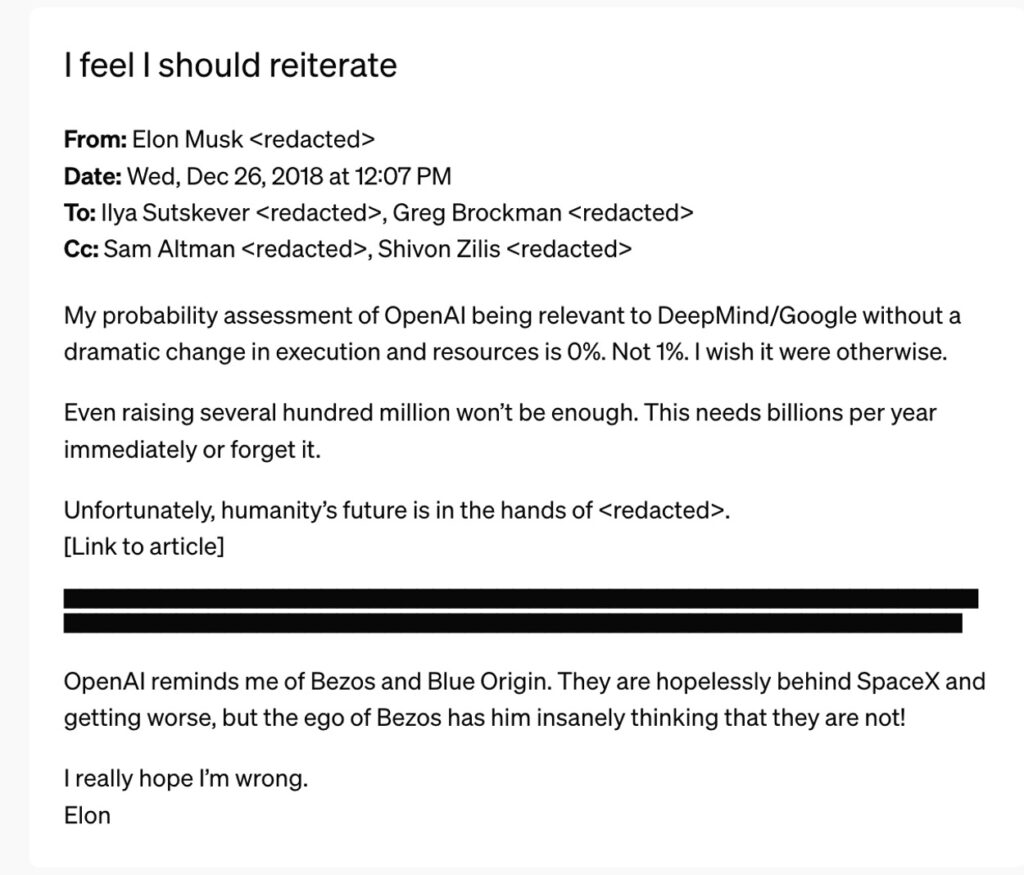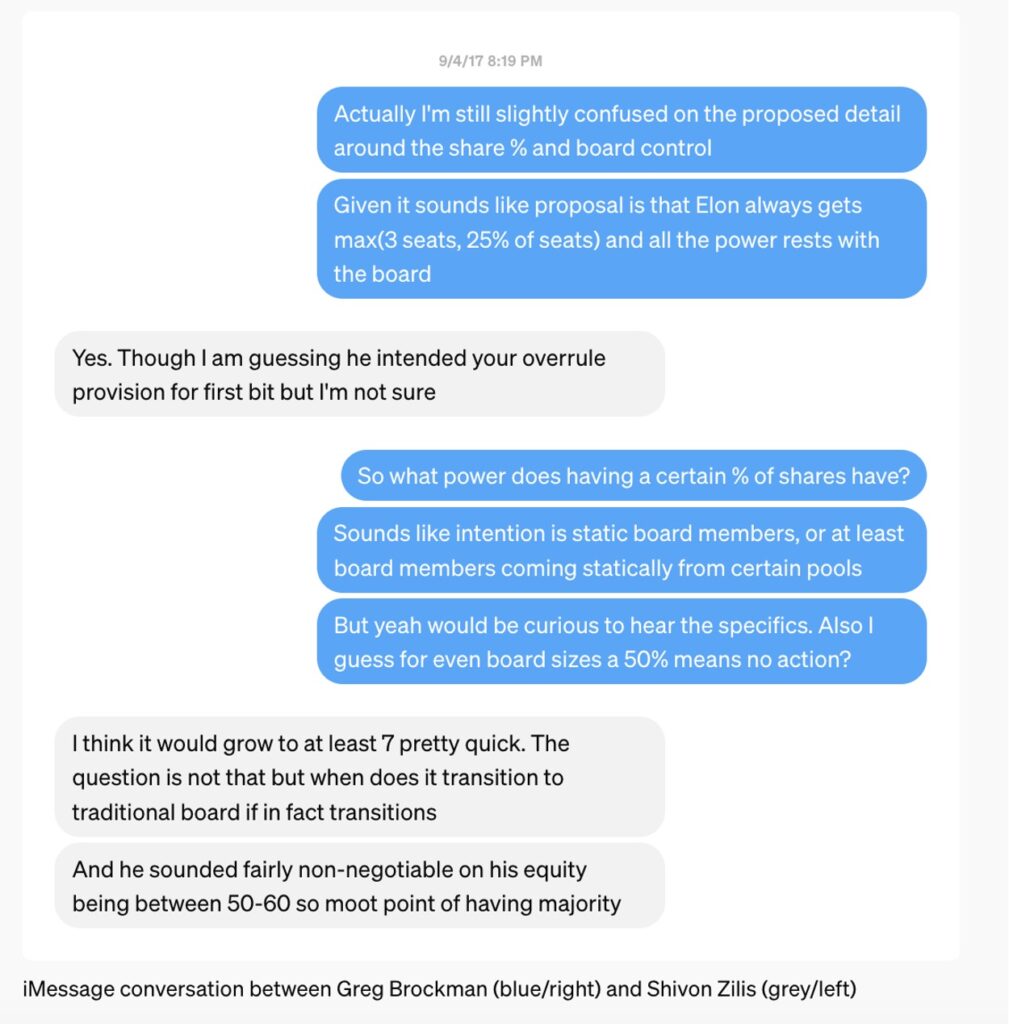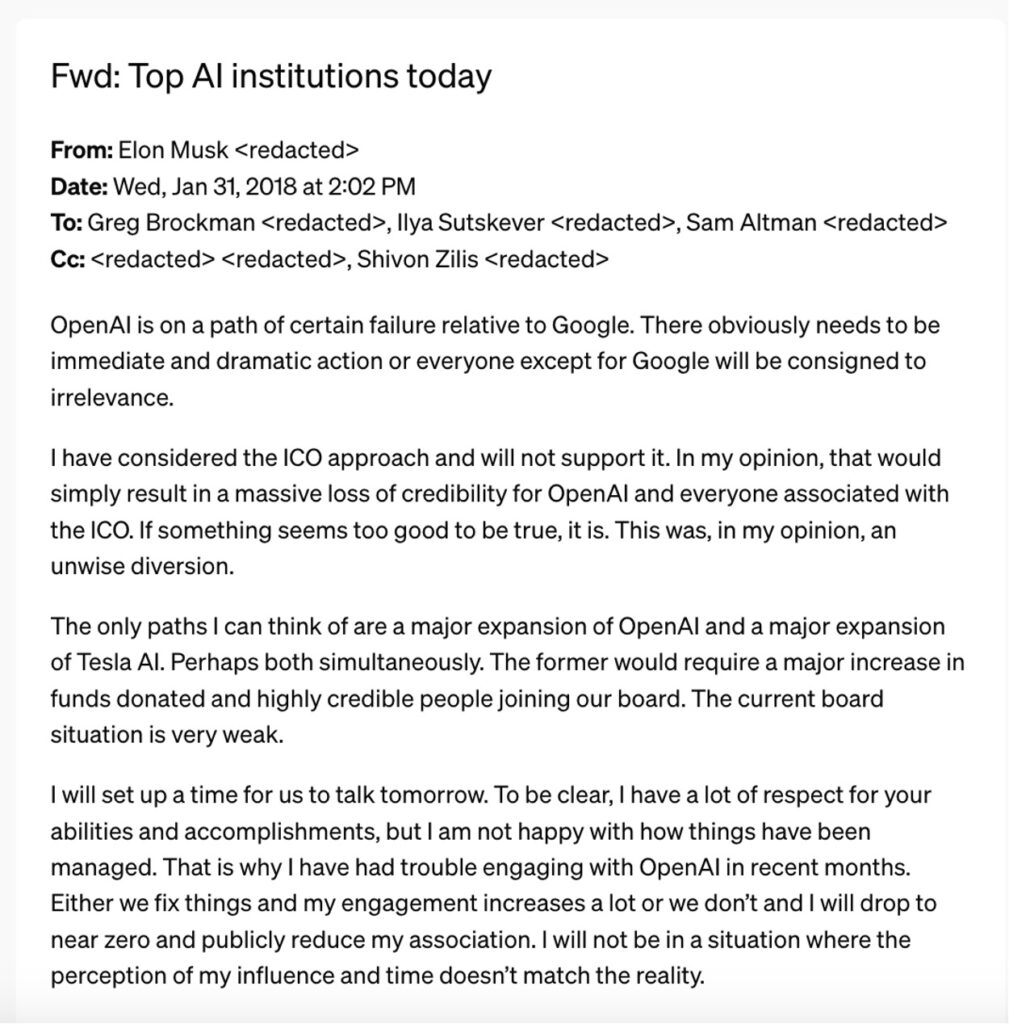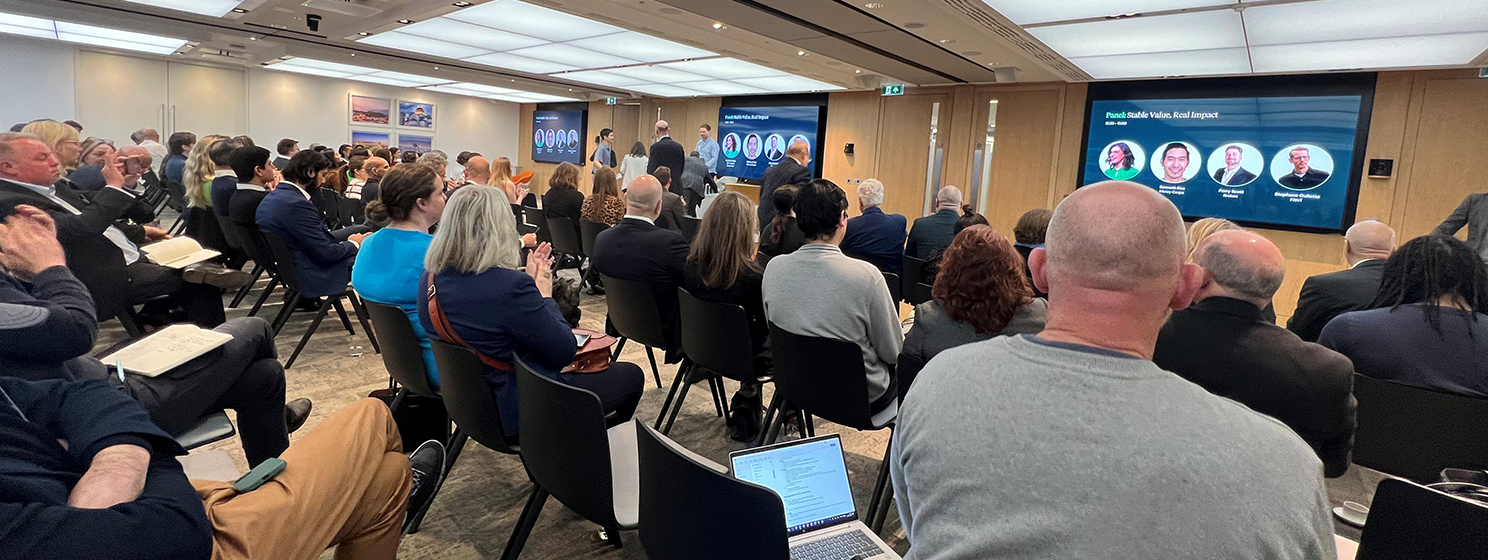|
Getting your Trinity Audio player ready...
|
It’s no secret that Elon Musk and Sam Altman do not like each other, but it wasn’t always this way. Their differences have been bubbling beneath the surface for years, but the recent fallout from the Stargate announcement has brought their feud back into public view. Now that this can of worms has been re-opened, there’s no turning back, and the conflict is only set to escalate from here.
The Origins: Musk and Altman’s early collaboration at OpenAI
In 2015, Musk and Altman co-founded OpenAI alongside nine others; the group initially set out to build an open-source AI research lab that would “advance digital intelligence in the way that is most likely to benefit humanity.” One reason OpenAI positioned itself this way was to counterweight Silicon Valley giants like Google DeepMind (NASDAQ: GOOGL), which were developing artificial intelligence (AI) behind closed doors, researching and developing within their walled gardens.
Musk sat on OpenAI’s board and was one of the nine major donors who pledged to bring $1 billion in working capital to the organization. While the exact amount he contributed is unclear, it’s estimated that Musk donated between $15 million and $57.4 million from 2016 to 2020.
On the surface, things seemed fine. OpenAI was quietly developing AI models. One of its first AI systems was a bot that played the computer game DOTA 2; this bot beat the DOTA 2 world champions. But behind closed doors, tensions were brewing. Musk reportedly had concerns about OpenAI’s leadership and direction from the very beginning, questioning whether a nonprofit model was the right approach. He repeatedly argued that achieving OpenAI’s ambitious goals would require raising tens of billions of dollars.

Elon Musk vs. OpenAI: The lawsuit that reignited their feud
By 2017, Musk’s dissatisfaction had reached a breaking point. He allegedly proposed taking majority ownership of OpenAI and even suggested himself as the company’s CEO—both of which were rejected by the board.

Around this time, Tesla (NASDAQ: TSLA) was scaling up its AI operations through self-driving technology, creating a clear conflict of interest between Tesla and OpenAI’s operations. This is one of the reasons that Musk stepped down from OpenAI’s board in 2018, and shortly afterwards, he began publicly criticizing the organization.
Musk claimed OpenAI had strayed from its original mission and that he didn’t have faith in some of the OpenAI team members who were in leadership positions. On the other side of the table, OpenAI suggested Musk was simply upset because he didn’t get his way while at the company. Although the tension between Musk and OpenAI existed, it faded to the background until February 2024, when Musk reignited the battle by suing OpenAI. The lawsuit accused the company of breaching its founding agreement by abandoning its nonprofit roots to chase profits. Musk was looking for a court ruling that would force OpenAI to make its research publicly available, prohibiting its executives and its largest financial supporter, Microsoft (NASDAQ: MSFT), from financially benefiting from its work.
OpenAI responded with a blog post exposing email exchanges that showed Musk was not only aware of the company’s evolving corporate strategy but had even encouraged it at times. Shortly after, Musk withdrew the lawsuit without explanation, only to refile a slightly modified version two months later, claiming he had been deceived into co-founding OpenAI.
While this court battle was coming to fruition, OpenAI moved forward with its corporate transformation and announced plans to transition into a for-profit benefit corporation by the end of 2025. By October 2024, OpenAI had raised $6.6 billion in funding, pushing its valuation to $157 billion. Seeing this, Musk escalated the conflict again—this time filing a motion for a preliminary injunction to block OpenAI’s transition into a for-profit entity. OpenAI responded in the courts, saying that if Musk’s motion was granted, it would “debilitate OpenAI’s business, board deliberations, and mission to create safe and beneficial AI,” to Musk’s advantage.
The power struggle between Elon Musk vs. OpenAI
On the surface, Musk’s battle against OpenAI appears to be about principles—AI for humanity versus AI for profit. But when you read between the lines, it becomes clear this battle is more likely about business dominance by way of intercompany political and economic warfare.
Musk’s xAI, an AI company aimed at accelerating human scientific discovery, is a direct competitor to OpenAI, and Musk’s automotive company, Tesla, heavily relies on AI for its Full Self-Driving (FSD) system. Although I would not doubt that Musk’s involvement in OpenAI indeed came from an interest in its nonprofit mission, I do think that over time, Musk had additional incentives and viewed his OpenAI affiliation as a strategic move that could help him accomplish goals he had outside of the nonprofit and within his other companies.
In 2018, Musk proposed merging OpenAI with Tesla, arguing that Tesla’s financial resources could immediately provide OpenAI with the $1 billion budget it needed to scale. Around the time he left OpenAI, he sent the OpenAI team an email reinforcing the idea that he viewed Tesla—not OpenAI—as the most viable vehicle for achieving AI development.
OpenAI is not innocent or purely a victim of all of this either; OpenAI probably benefited from Musk’s association during its early years. Having Musk’s name attached to the company probably made fundraising easier and gave OpenAI access to political and regulatory connections that were valuable in navigating government policy. However, when OpenAI’s direction diverged from Musk’s vision for the nonprofit, Musk began to tone down his support for the nonprofit. An email from Musk to Sam Altman even says, “I will not be in a situation where the perception of my influence and time doesn’t match the reality.”

By the time OpenAI was transitioning into a for-profit entity, Musk was no longer just a disgruntled ex-board member—he was a direct competitor that could capitalize on OpenAI’s struggles.
Musk vs. Altman escalates: Stargate, politics, and the battle for AI supremacy
In early 2025, the feud between Musk and Altman became even more public when President Trump, Sam Altman, Larry Ellison, and Masayoshi Son announced Stargate—a $100 billion initiative to expand AI data centers in the U.S. Almost immediately, Musk took to Twitter to dismiss the project, questioning whether the backers actually had the funds to support it.
When asked about Musk’s comments, Trump suggested that Musk’s criticisms were motivated by personal animosity, saying, “He hates one of the people in the deal.” While he didn’t specify who, it was clear he was referring to Sam Altman.
With OpenAI’s transition to a for-profit model in progress and Musk’s lawsuits still unfolding, the battle is now about much more than just past grievances. If Musk succeeds in slowing down or disrupting OpenAI’s plans, it could cause friction among OpenAI investors and disrupt the company’s fundraising plans and its rumored eventual IPO. If this were to happen, Musk’s own AI ventures, xAI and Tesla, stand to gain from any setback OpenAI faces, whether that be available investment dollars or talent that deflects from OpenAI or talent that is looking to join one of the leading and well-capitalized AI companies.
Beyond the legal fight, Musk’s government position gives him unique advantages. As an advisor to the White House and head of the Department of Governmental Efficiency (DOGE), he has insight into AI-related policy discussions that could shape the future of the industry—insight that OpenAI lacks. Musk can also potentially advocate in a way that benefits his companies while thwarting OpenAI as a company.
The Musk-Altman feud is entering a new era
Musk and Altman’s conflict played out behind the scenes for nearly a decade, in private correspondences and the occasional social media spat. But now, with lawsuits filed, political alliances forming, and billions of dollars on the line, this battle has entered a more formal stage that is far from over. As OpenAI pushes forward with its for-profit transition and Musk continues his legal and social media crusades, this feud will only intensify.
Related reads:
- The Elon Musk vs Sam Altman Feud part 2
- The Elon Musk vs Sam Altman Feud part 3
- The Elon Musk vs Sam Altman Feud part 4
- The Elon Musk vs Sam Altman Feud part 5
In order for artificial intelligence (AI) to work right within the law and thrive in the face of growing challenges, it needs to integrate an enterprise blockchain system that ensures data input quality and ownership—allowing it to keep data safe while also guaranteeing the immutability of data. Check out CoinGeek’s coverage on this emerging tech to learn more why Enterprise blockchain will be the backbone of AI.
Watch: Rediscovering Blockchain: Here’s how you build trust at scale

 02-23-2026
02-23-2026 




